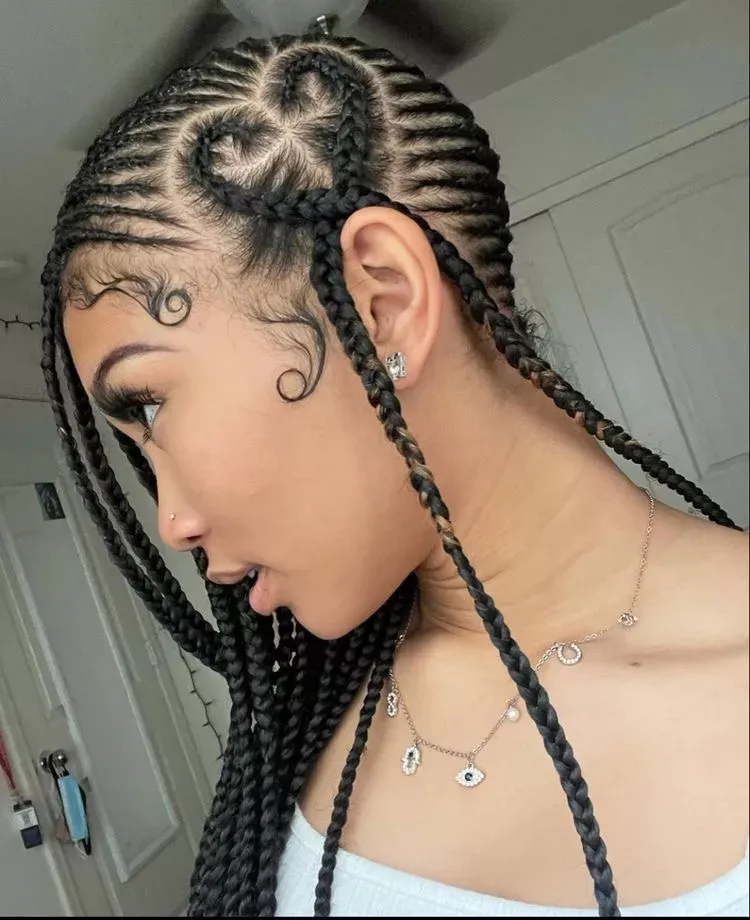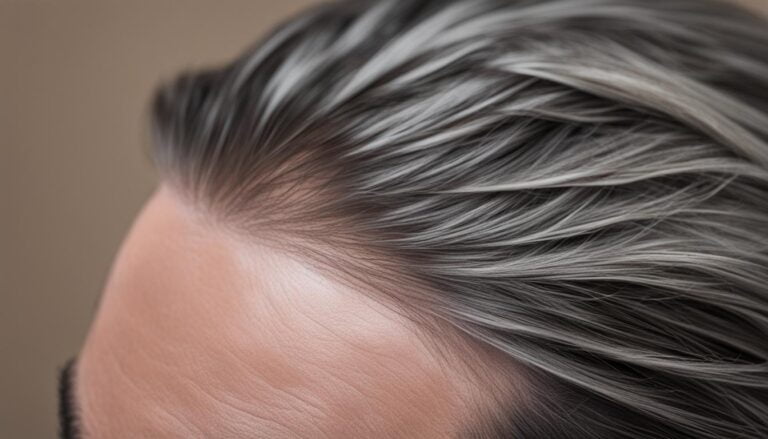Does B12 Help with Hair Loss?
Vitamin B12, also known as cobalamin, is a crucial vitamin that plays a role in various bodily functions, including the synthesis of red blood cells, growth, maintaining the nervous system, and DNA synthesis. A deficiency in vitamin B12 can lead to symptoms such as tiredness, pallor, reduced ability to combat infection, hair loss, and more. Hair loss caused by vitamin B12 deficiency is often a result of disrupted DNA and the production of mutant cells called megaloblasts. It is important to note that hair loss due to vitamin B12 deficiency is often related to issues with absorption rather than actual deficiency. Vegans and vegetarians are more at risk of B12 deficiency due to their diet, and supplementation may be necessary in some cases. The recommended intake of vitamin B12 varies depending on age, and deficiencies are relatively common, affecting a significant percentage of the population. It is important to address B12 deficiency early to prevent further complications.
Key Takeaways:
- Vitamin B12 is essential for various bodily functions and plays a role in hair health.
- A deficiency in vitamin B12 can lead to hair loss, especially in individuals with absorption issues or a vegan/vegetarian diet.
- Supplementation may be necessary to address B12 deficiency and promote hair growth.
- Vitamin B12 is not a standalone solution for addressing hair loss concerns, and other factors such as nutrient deficiencies and underlying conditions should be considered.
- Consulting with a healthcare professional is important for accurate diagnosis and appropriate treatment.
Sources of Vitamin B12 for Hair Health
Vitamin B12 is essential for maintaining hair health and preventing hair loss. It is important to incorporate B12-rich foods into your diet or consider supplementation if necessary. Here are some reliable sources of vitamin B12:
- Meat, such as beef, chicken, and pork
- Eggs
- Dairy products, such as milk, cheese, and yogurt
- Fortified breakfast cereals
- Canned tuna
- Rainbow trout
- Clams
- Haddock
- Nutritional fortified yeast
For individuals following a vegan diet, obtaining enough vitamin B12 can be a challenge. While plant sources of B12 are not considered reliable, there are vegan options available:
- Fortified plant-based milk, such as soy or almond milk
- Fortified breakfast cereals
- B12 supplements
It is important to consult with a healthcare professional or registered dietitian to determine the best approach for meeting your B12 needs based on your dietary preferences and health status.
Vitamin B12 and Hair Growth
Vitamin B12 plays a crucial role in promoting healthy hair growth. One of its primary functions is to ensure the proper synthesis of red blood cells, which are responsible for carrying oxygen and nutrients to the hair follicles. Hair follicles require an adequate oxygen supply to stimulate the growth and maintenance of hair.
A deficiency in vitamin B12 can lead to inadequate oxygen supply to the hair follicles, resulting in hair loss or thinning. When the hair follicles do not receive enough oxygen, they may become weak and unable to produce new hair. This can lead to a decrease in hair growth and the appearance of thinning or bald patches.
Therefore, it is important to maintain sufficient levels of vitamin B12 in the body to support healthy hair growth. This can be achieved through a balanced diet that includes sources of vitamin B12 such as meat, eggs, dairy products, fortified cereals, and supplements. However, it is essential to address underlying causes of hair loss, as B12 supplementation alone cannot regrow hair or prevent hair loss in cases unrelated to B12 deficiency.
Effects of Vitamin B12 on Hair Health:
- Promotes hair follicle health: Vitamin B12 helps maintain the health of hair follicles by supporting the production of red blood cells and ensuring proper oxygen delivery.
- Prevents hair loss: Adequate levels of B12 can help prevent hair loss caused by a lack of oxygen and nutrients reaching the hair follicles.
- Improves hair strength and thickness: B12 plays a role in the production of proteins that make up the hair shaft, which can enhance hair strength and thickness.
- Enhances hair growth: By supporting the overall health of the hair follicles, B12 can promote healthy hair growth and reduce the risk of hair thinning and baldness.
In conclusion, vitamin B12 is an important nutrient for maintaining optimal hair health. It supports the growth and strength of hair follicles by ensuring an adequate supply of oxygen and nutrients. While B12 supplementation can be beneficial, it is crucial to address any underlying causes of hair loss and consult with a healthcare professional for a comprehensive treatment plan.
Other Factors Affecting Hair Health
When it comes to hair health, it’s important to consider various factors beyond just vitamin B12 intake. Understanding the difference between hair shedding and hair loss is crucial. Hair shedding is often a temporary condition caused by stressors like pregnancy, illness, or emotional stress. On the other hand, hair loss occurs when the hair follicles stop producing new hair.
Stress can also impact hair health. Chronic stress can disrupt the natural hair growth cycle, leading to hair loss. This occurs due to the increased production of stress hormones, which can shrink the hair follicles and inhibit hair growth. Managing stress levels through relaxation techniques, exercise, and self-care can help promote better hair health.
Nutrient deficiencies can also contribute to hair loss. Inadequate intake of essential vitamins and minerals can result in weakened hair follicles and reduced hair growth. It’s important to maintain a balanced diet rich in nutrients like iron, zinc, biotin, and vitamin D to support healthy hair. Additionally, autoimmune conditions such as alopecia areata can cause hair loss. These conditions occur when the immune system mistakenly attacks the hair follicles, leading to hair loss in patches or across the scalp.
While vitamin B12 is an essential nutrient for hair health, it’s important to address these other factors alongside B12 intake. Taking a comprehensive approach that includes managing stress, addressing nutrient deficiencies, and seeking appropriate medical treatment for autoimmune conditions can contribute to overall hair health and help prevent further hair loss.
Conclusion
In conclusion, vitamin B12 plays a crucial role in maintaining hair health, but it is not a miracle solution for hair loss concerns. It is essential to understand the importance of B12 in hair health and address any deficiencies or absorption issues to promote healthy hair growth.
However, it is important to remember that addressing hair loss concerns requires a comprehensive approach. Alongside adequate B12 intake, it is vital to maintain a balanced diet, manage stress effectively, and consider other contributing factors such as nutrient deficiencies or autoimmune conditions.
Consulting with a healthcare professional or dermatologist is recommended to determine the underlying causes of hair loss and develop a personalized treatment plan. By taking a holistic approach to hair health, you can optimize your chances of promoting healthy hair growth and preventing further hair loss.
FAQ
Does B12 help with hair loss?
Yes, vitamin B12 plays a crucial role in hair health. Adequate intake of B12 ensures the proper synthesis of red blood cells, which carry oxygen to the hair follicles. Proper oxygen supply is necessary for hair growth, and a deficiency in B12 can lead to hair loss or thinning.
What are the sources of vitamin B12 for hair health?
Vitamin B12 can be sourced naturally through the diet. Animal products such as meat, eggs, and dairy are reliable sources of unfortified B12. Fortified breakfast cereals, canned tuna, rainbow trout, clams, haddock, nutritional fortified yeast, and B12 supplements are also sources of B12. It is important to note that plant sources of B12 are not considered reliable.
How does B12 promote hair growth?
Vitamin B12 ensures the proper synthesis of red blood cells, which carry oxygen to the hair follicles. Hair follicles require oxygen and nutrients to stimulate the growth of hair. Adequate B12 intake, whether through diet or supplementation, can help promote healthy hair growth.
What other factors can affect hair health?
Hair shedding is often temporary and can occur due to stressors, pregnancy, illness, or stress. Hair loss, however, occurs when the hair follicles stop growing new hair. Factors such as nutrient deficiencies, autoimmune conditions like alopecia, certain medical treatments, and hereditary influences can contribute to hair loss.
Is B12 supplementation enough to prevent hair loss or regrow hair?
B12 supplementation can help address hair loss caused by B12 deficiency. However, it is important to address underlying factors and take a comprehensive approach to hair health. This includes maintaining a balanced diet, managing stress, and addressing any nutrient deficiencies or autoimmune conditions that may contribute to hair loss.







